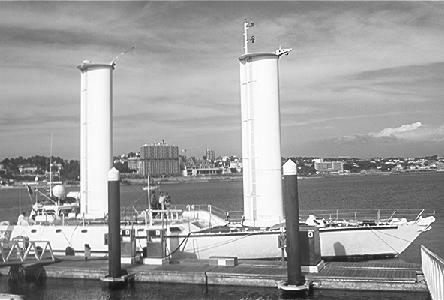Debt Rattle August 8 2023
Home › Forums › The Automatic Earth Forum › Debt Rattle August 8 2023
- This topic has 42 replies, 15 voices, and was last updated 1 year, 4 months ago by
WES.
-
AuthorPosts
-
August 9, 2023 at 3:42 am #140808
jb-hb
ParticipantImagine what it was like for the sailing crews who would soon be unemployed as the new ships required far fewer crew to operate. Their career fate preceded that of horses and blacksmiths losing out to the automobile.
That reminded me of some cool things
Meet Preussen, the steel, 5-masted cargo vessel that sailed 1902-1910

Padua, another steel sailing ship, was laid down in 1926 and sails to this day. A working vessel into the 1960’s she switched to regattas in the 70’s. She circumnavigated the globe more than once, most recently 2005–06. In her old age (her 70’s) she has sunk a tug boat (2014) and damaged 2 coastguard ships by ramming them. (2015) Still floating/sailing to this day.
Remember Couseu’s Turbosail?

The turbosail or French turbovoile is a marine propulsion system using a sail-like vertical surface and a powered boundary layer control system to improve lift across a wide angle of attack. This allows the sail to power the boat in any direction simply by moving a single flap at the back of the sail, unlike conventional sails which have to be continually adjusted to react to changes in the relative wind.
According to the Cousteau Society, “when compared to the thrust coefficient of the best sails ever built (Marconi or square types, i.e. ships of the American Cup [sic] or the Japanese wind propulsion system) that of the turbosail is 3.5 to 4 times superior and gives the system a unique advantage for the economical propulsion of ships.”
That was 1980. What could modern materials and computers do?
I’ve often wondered why modern shipping doesn’t switch back to sailing, considering the free motive power and computers/automation. Large ships would have the advantage of allowing the airfoils to descend partially or fully into the deck in rough weather. No rigging required, just a computer controlled pillar.
New study shows huge environmental & economic benefits of slowing down shipping
One giant container ship pollutes the air as much as 50 million cars. Yes, that’s 50 million. Which means that just 15 ships that size emit as much as today’s entire global “car park”
Modern cargo ships slow to the speed of the sailing clippers
The cost benefits are clear. When speed is reduced by 20%, fuel consumption is reduced by 40% per nautical mile. Slow steaming is here to stay. Its introduction has been the most important factor in reducing our CO2 emissions in recent years, and we have not yet realised the full potential. Our goal is to reducing CO2 emissions by 25%.
They’re ALMOST there with their big-brain ideas. Just one final connection. “We’re going the same speed AS sailing ships…. wait, isn’t 100% reduction of pollution a lot bigger reduction than 25%?”
Please, TPTB. Consider doing cool stuff as an alternative to pretending humans are vermin
August 9, 2023 at 4:14 am #140809WES
ParticipantMaxwell :
Thank-you for the link!
Yes, very informative!
The French supplied cruise missiles to Ukraine are being reprogrammed to hit France’s credit rating via Niger and the EU for good measure too !Glad to see you are still around!
August 9, 2023 at 4:24 am #140810WES
Participantjb-hb :
Thanks for sailing info. I had no idea anyone had ever built steel sailing boats.ķ⁰
-
AuthorPosts
- You must be logged in to reply to this topic.








Sorry, the comment form is closed at this time.